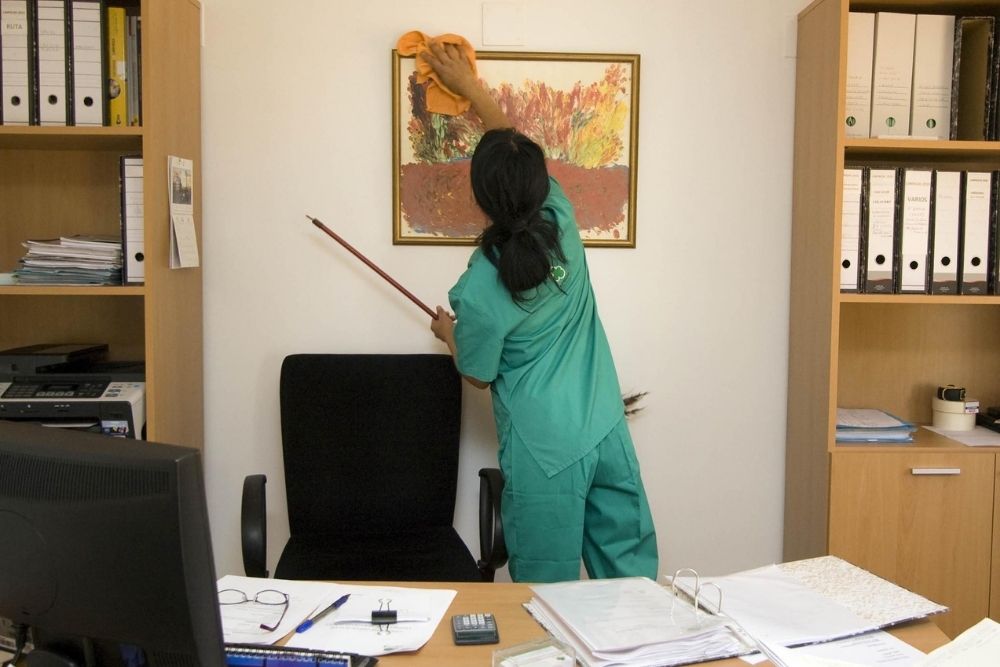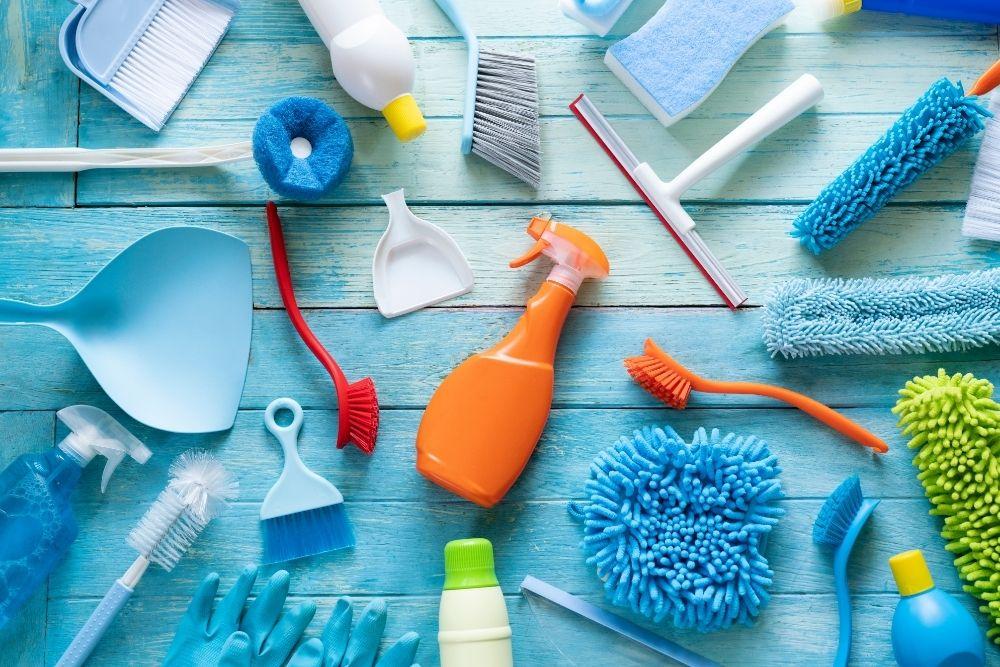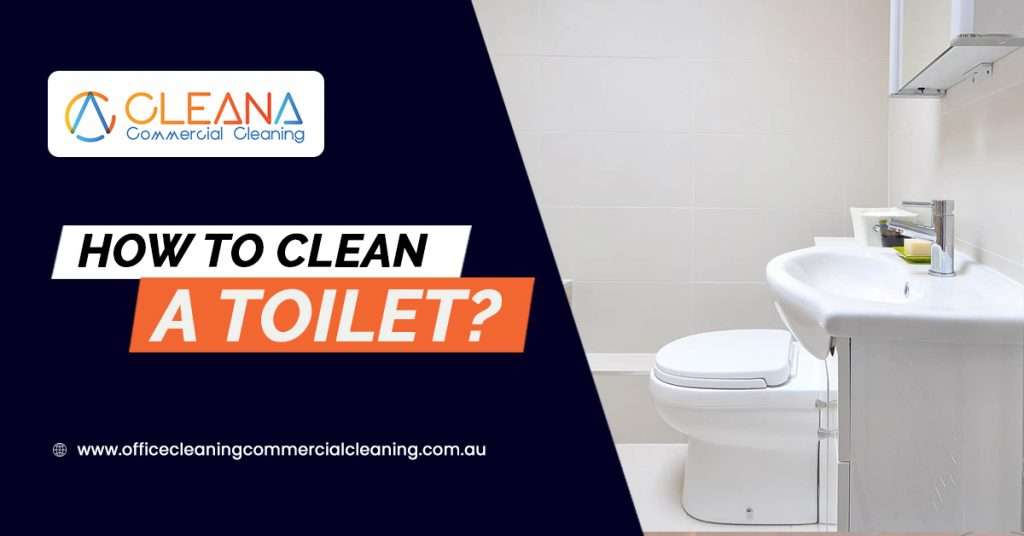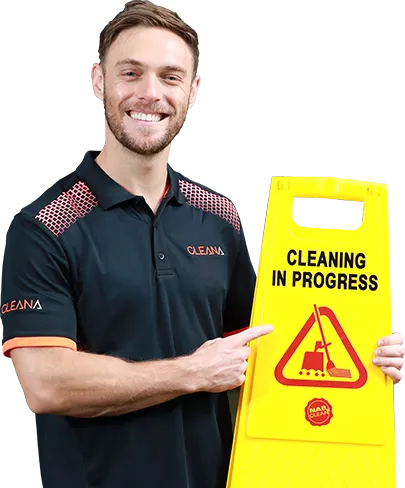Keeping on top of household chores can be a challenge, enlisting some help is advisable if it’s getting a bit too much. If you’re looking to hire a commercial cleaner to do a few hours of work for you each week, you might be wondering what they could realistically achieve in that time.
Two hours isn’t long, but with good organization and swiftness, it can make a huge difference. So, what should you expect a cleaner to do in a two-hour timeframe?
In two hours, a cleaner should have enough time to:
- Mop the kitchen floor
- Wash dishes
- Hoover the floors (without moving anything)
- Clean the bathroom
- Wipe the sinks/taps around your home town
However, this is just a guide and is dependent on a few factors
- How dirty is your home? – If there is a lot of dirt at the beginning of the cleaning session, it’s likely the cleaner will not get as much cleaning done in the two hours as is required.
- How experienced is the cleaner? – Do they seem prepared and ready for work? Have you provided them with a plan and structure? Experienced cleaners, who clean for a living and enjoy their job, can clean with ease and speed. However, for some, cleaning is a stop-gap until they find another job. Be sure to choose a cleaner who has a good reputation and ask for recommendations.
- Is your home easy to navigate? – Will the cleaner have to move items/ clean around things to complete what you’ve asked of them? This should be taken into consideration as it will take extra time.
- Does the cleaner understand what you’ve asked them to do? – Have you given them autonomy or do they have a list of instructions? Instructions are crucial and can help the cleaner be organized when cleaning within a timeframe.
- Have you specified what is included in every task? – Be very clear to avoid misunderstanding
- How big are your home and its rooms? – Bigger houses require longer cleaning times, so bear in mind that not everything may be covered in 2 hours.
It’s challenging to estimate exactly what cleaning tasks can be accomplished in two hours because there are so many variables. Typically, they should be able to do some vacuuming clean and wipe down some worktops and clean a bathroom in a two-hour period, at a minimum.
You should try to be efficient if you only have a two-hour-long cleaning session. Take note of the following tips to help you along.
Try not to expect miracles when you hire a cleaner. There is only so much that they can do, so don’t raise expectations too high. Try to help them out before they start to get things started in the right way.

Communicate
Lack of communication is often at the crux of most misunderstandings. Talk with the cleaner before they commence duties, so you can outline your expectations for a two-hour session. Precise and clear communication also makes for a good working relationship and enables employers and employees to build trust.
Stick To Cleaning, Not Reorganizing/Tidying
It’s useful to remember that cleaners clean, they are not employed to organize your life and tidy things away. It’s your responsibility to make cleaning accessible by ensuring they are able to get to the places you have asked them to clean.
Have An Idea How Long Cleaning Tasks Take?
By doing the tasks yourself, you’ll get an idea of what tasks to allocate during the session, and what tasks may require a little longer.
Set an alarm on your phone and time how long it takes you to vacuum your home without moving furniture and make a note as you go.
Keep doing this for other tasks like washing up (5 minutes), mopping the floor (30 minutes), cleaning the worktops (20 minutes), and scrubbing the toilet (30 minutes).
You could then add up the times and give the cleaner a guide like this:
Hoovering: 30 minutes
Washing up: 20 minutes
Kitchen floor: 20 minutes
Kitchen worktops: 20 minutes
Bathroom: 30 minutes
By making a list like this, your cleaner will know exactly what they need to accomplish in the 2 hours and use it as a guide. And because you have already tested it, you can be confident that the tasks are achievable and manageable during the cleaning time.
Prioritize Tasks And Rooms
Don’t expect your cleaner to clean every single room in the time allotted. Be specific and tell them exactly what you want them to do and in what rooms.
This may change each week but make sure they are aware. This way they won’t waste precious time cleaning rooms and areas that you don’t want clean.
For example, the kitchen is used every day and will probably be a top priority for the cleaner, but bedroom number three which is only used for guests probably isn’t.

Prepare Your Home
Be sure to address health and safety issues in your home before your cleaner arrives. Move any potential hazards out of the way, so your cleaner isn’t put in unnecessary danger.
Removing certain items and obstacles will help the cleaner do their job more efficiently and speed up the process. Be sure to put away clothes and stationery and clear away the mess.
Give Feedback
To avoid bad feelings if things aren’t done as you would like or areas have been missed, be sure to give constructive feedback, so the cleaner can rectify the problem during the next session. Everyone has different ways of doing things, so be sure to remind them of anything that has been missed gently.
Show Respect
Anyone that is providing service should be treated with professionalism and respect. Be kind to your cleaner and if they do something you don’t like, remain calm and explain to them what they can do to improve.
It’s important to remember that it may take a few sessions for a cleaner to figure out how you like things done, so don’t be harsh if they don’t get it right immediately. Being nice to people always results in getting better service than if you treat them badly.
Having a cleaner certainly makes daily tasks easier, and they can become a vital part of the smooth running of your life if you treat them well and communicate effectively.


